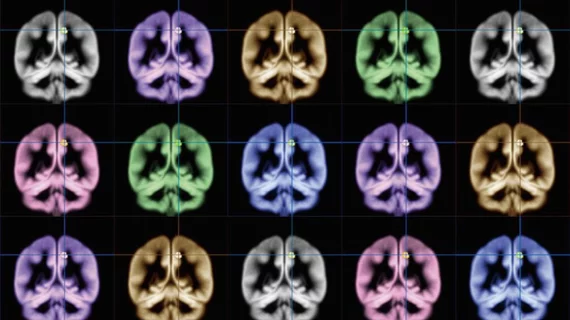MRI-derived brain vessel disease score connected to increased stroke, dementia risk
A score made up of four MRI markers of cerebral small vessel disease (CSVD) has been linked to stroke, dementia and mortality in older adults, reported authors of an Oct. 24 study published in Stroke.
Pinar Yilmaz, MD, with Erasmus Medical Center in Rotterdam, the Netherlands, and colleagues included 1,651 patients with no history of stroke or dementia at baseline. All received brain MRIs used to determine the CSVD sum score on a scale of 0-4. Researchers used white matter hyperintensities (WMH), lacunes, cerebral microbleeds and perivascular spaces (PVS) for their calculations.
A point was added to the score if a patient experienced the following events: a fall in WMH volume in the third or fourth quartiles, at least one lacune, at least one microbleed or 11 or more perivascular spaces between 1 and 3 mm.
Each one-point increase was associated with a 54 percent increased risk of stroke, 25 percent increased risk of dementia and 15 percent risk of increased mortality at 10 years, the authors reported.
“In a community-dwelling population, a higher CSVD score on MRI shows stronger associations with risk of stroke, dementia, and mortality than individual markers,” Yilmaz et al. wrote. “This suggests that the score better reflects the global measure of CSVD-related brain damage.”
Read the entire CardiovascularBusiness story below.

